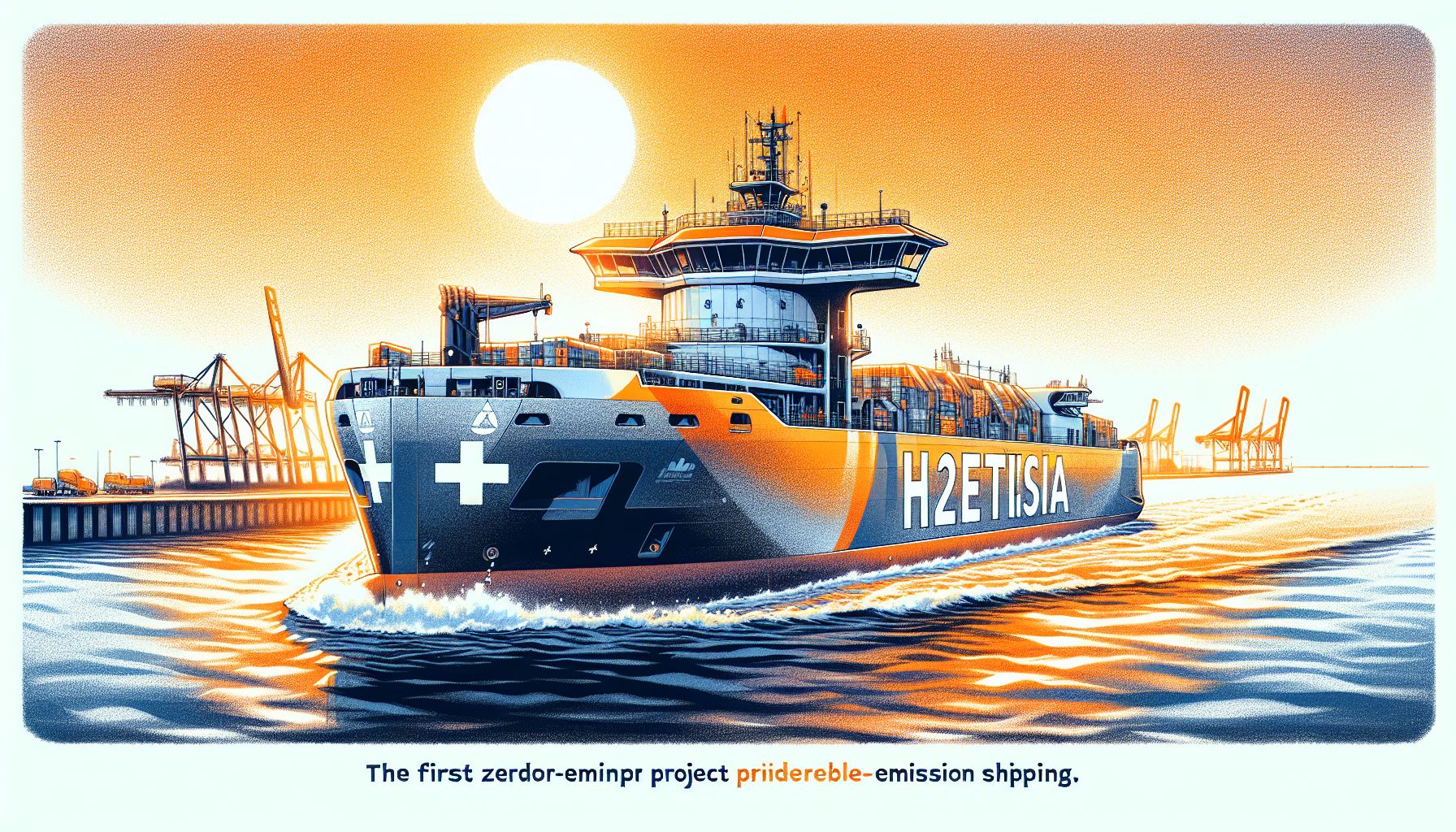Dutch H2ESTIA Project Pioneers Zero-Emission Shipping

Sliedrecht, Thursday, 27 March 2025.
The H2ESTIA Project, led by the Dutch Innovation Company, aims to develop the first zero-emission cargo ship powered by liquid hydrogen, revolutionizing sustainable maritime transport.
Groundbreaking Maritime Innovation
The Nederlandse Innovatie Maatschappij (NIM), based in Sliedrecht, Netherlands, is spearheading this transformative initiative with support from the Dutch Ministry of Infrastructure and Water Management [1]. The project, announced on March 26, 2025, represents a significant milestone in maritime sustainability, as it integrates advanced hydrogen technology with innovative digital solutions to create a viable zero-emission cargo vessel [2].
Technical Innovation and Integration
At the core of the H2ESTIA Project lies a sophisticated propulsion system that combines multiple clean technologies. The vessel will feature a cutting-edge cryogenic hydrogen storage and bunkering system, complemented by hydrogen fuel cells and battery technology for primary propulsion [1]. To maximize efficiency, the design incorporates wind-assisted propulsion and waste heat recovery systems, while utilizing digital twin technology for real-time monitoring and operational optimization [1].
Industry Collaboration and Implementation
The project has garnered support from a powerful consortium of maritime and technology firms. Key partners include TNO, MARIN, the University of Twente, Cryovat, EnginX, Encontech, and classification society RINA [1]. Van Dam Shipping will manage the vessel’s operations, with CEO Jan van Dam emphasizing the importance of developing parallel infrastructure for hydrogen supply and bunkering logistics [1].
Future Impact and Timeline
This project forms a crucial component of the Maritime Masterplan, setting new standards for decarbonizing European maritime logistics [1][2]. According to Roosjen, CTO at NIM, the H2ESTIA project demonstrates that ‘zero-emission shipping is not just a vision—it is an achievable reality’ [1]. The initiative aims to address key challenges including hydrogen system certification, risk management, and crew training, establishing a framework for the broader adoption of hydrogen technology in maritime operations [1].

